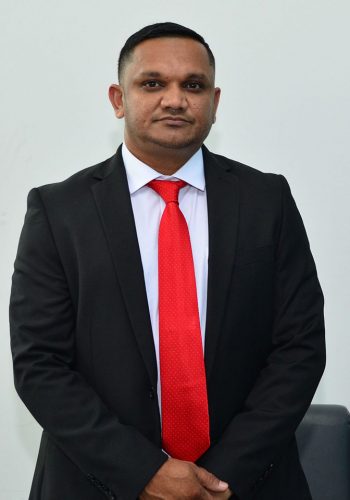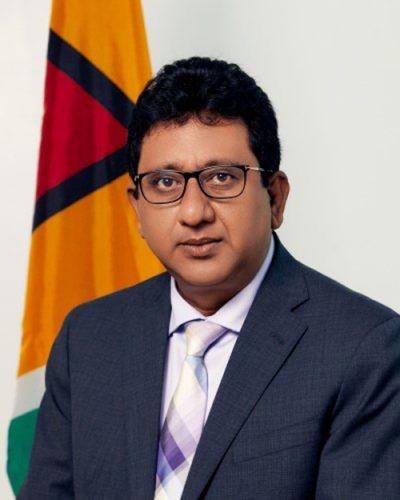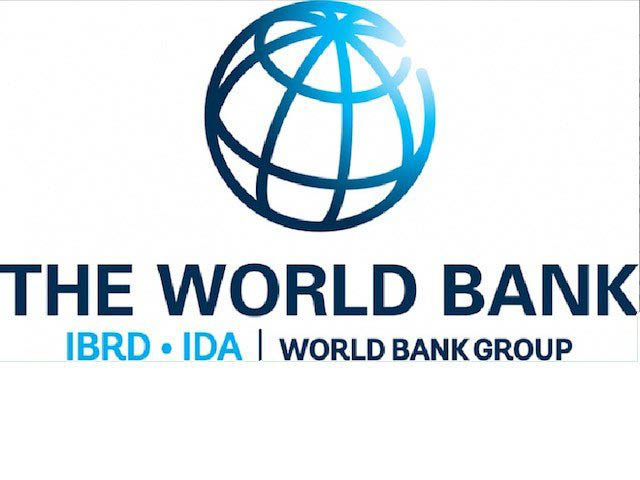With nearly US$345 million in a United States account from oil proceeds and no legislation for a Natural Resource Fund or its spending nearly 18 months after oil production began, the World Bank says Guyana’s fund needs early operationalising.
“The early operationalisation of the NRF is essential to address any potential challenges posed by the sudden influx of significant export and fiscal revenues,” World Bank Senior External Affairs Officer Hannah McDonald-Moniz said in response to questions from Sunday Stabroek.
The Natural Resource Fund legislation has not yet been activated, and observers have pointed to the seeming sloth with which the PPP/C administration is moving to see the critical piece of legislation enacted, despite being in office for more than nine months.

In 2019 the World Bank approved a US$20 million loan for a Guyana Petroleum Resources Governance and Management project. And while the body does not finance oil and gas exploration, development, or production in Guyana, it has been engaging with the Guyana Government on technical assistance focused on strengthening institutions and regulations to promote good governance and the transparent and prudent management of the sector.
McDonald-Moniz explained that the ongoing World Bank-Guyana Petroleum Resources Governance and Management Project supports the Government of Guyana’s efforts to develop and introduce an effective and transparent management system for public finances, ahead of expected petroleum sector revenues.
She said that component includes “the design and

implementation of an Integrated Financial Management System that aims for more effective management over public finances, enhanced transparency and accountability, and support for the urgently needed operationalization of the Natural Resource Fund.”
Under the project, according to the World Bank spokesperson, the Bank has been working with the government to deploy international specialists on governance of the petroleum sector to deliver advisory support and on-the-job training. “This activity aims to build long-term capacity for the Government of Guyana to independently manage, regulate, and oversee the oil and gas sector. The establishment, staffing and operation of Guyana’s Petroleum Commission is an essential element of this capacity building effort,” she said.
The Natural Resource Fund Bill, No. 14 of 2018, was tabled in Parliament on November 15, 2018. In the political limbo following the successful December 21st 2018 no-confidence vote against the former government, the controversial bill was passed without the opposition PPP/C being present. It was subsequently assented to by then President David Granger in January of 2019.
Agenda
Shortly after President Irfaan Ali had established his Cabinet in August last year, Minister of Natural Resources, Vickram Bharrat had said that petroleum legislation was high on the government’s agenda. He had especially singled out the Petroleum Commission Bill and the Natural Resources Fund (NRF) Act as two pieces of legislation to be addressed swiftly. Neither of these two pieces of legislation has been proceeded with.
In October last year, he had again stressed the importance of laws to guide the sector and told this newspaper that the NRF Act would most likely be repealed sometime this year.
“We have to repeal or amend it but we haven’t gotten down to details as to what it would be as yet because we are focusing now on local content and want to push that out and then start focusing on NRF and the Petroleum Commission Bill,” Bharrat had told this newspaper.
“We are taking everything in stages but by early next year we will focus on it to see it enacted,” he added. The oil and gas monies are with the New York Federal Reserve Bank. The NRF Act cannot be activated until the various committees are constituted.
In late April, Attorney General Anil Nandall had echoed much of what Bharrat had said and had told this newspaper that the focus last year was on local content and that government wanted holistic planning for the sector. He explained that there was a “necessary delay” in the process moving ahead because “we had to do the consultation for the local content policy to inform the legislation”.
He said that government did not want the process done “piecemeal” and as such all will be done simultaneously since the benefits together outweigh piece-by-piece legislative crafting.
“We didn’t want piecemeal. We are looking at it holistically, and this is for a number of reasons. Having one consultancy will impact cost and speed in which the exercise will be completed,” he said.
Updating on the consultancy process, Nandlall on Thursday said that the response to the tender has been pleasing to government as it has received submissions from a number of international law firms. Soon after the project is awarded, he said that it will swiftly begin.
“The bulk of the petroleum legislation and important policy related matters are the subject of an international consultancy which has been advertised publicly and tenders were invited on the 15th May 2021. The tenders were closed, so it is now with the evaluators at the NPTAB (National Procurement and Tender Administration Board) for those bids to be evaluated and awarded.”
Further, he added, “A number of very large international law firms applied, some associating themselves with local lawyers. The response has been heartening and that consultancy will be the driving force for those reforms. They are expected to work closely, obviously, with the Ministry of Natural Resources and the Drafting Department of the Ministry of Legal Affairs.”
Meanwhile, giving a global perspective on the World Bank’s operation as it pertains to the sector, the Senior External Affairs Officer said that worldwide, the engagement in oil and gas is “limited to technical assistance that focuses on strengthening transparency, governance, institutional capacity, and the regulatory environment.”
It is to this end that she noted that as it pertains to Guyana’s planned gas-to-shore project, the Bank has not had any input as it has not funded, nor has it participated in the development of a strategy for the use of natural gas here.
As such, the Bank is not privy to the factors that have determined the location or details for the gas-to-shore and gas-to-power project announced by the PPP/C administration. “The World Bank has not provided any support, nor funded or participated in any assessments, studies, or discussions on the subject,” she said.





